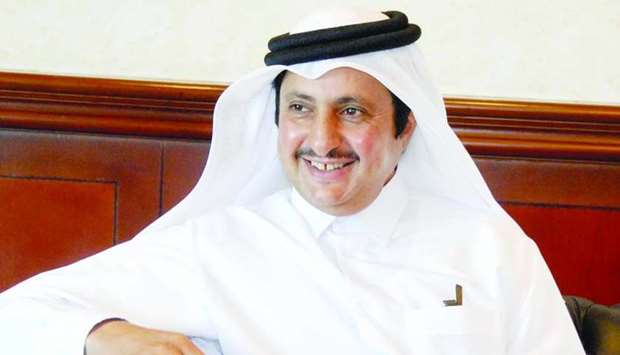Owing to a robust and vibrant economy, as well as to sound economic reforms and legislation, Qatar has showcased itself as an ideal investment destination, Qatar Chamber chairman Sheikh Khalifa bin Jassim al-Thani has said.
Several global business indices and rankings agencies have recognised the advantages Qatar offers to businesses, ranking it increasingly higher among attractive FDI destinations worldwide, Sheikh Khalifa told Oxford Business Group (OBG) in an interview.
“For instance, Qatar ranked 29th globally and second among Arab countries out of 141 nations on the World Economic Forum’s 2019 Global Competitiveness Index,” Sheikh Khalifa said in the interview, which appeared in OBG’s ‘The Report: Qatar 2020’.
“To achieve this, the country has adopted a series of measures and issued numerous legislative reforms, including a foreign capital investment law that allows for 100% foreign ownership of local companies across all sectors. We have also created new investment incentives, some of which allow for the allocation of land to foreign investors,” Sheikh Khalifa continued.
Citing the establishment of the Qatar Free Zones Authority (QFZA) in 2018, Sheikh Khalifa said the QFZA was founded with the aim of developing free zones and formulating policies tailored to businesses operating in these zones.
“The hosting the 2022 FIFA World Cup would also enhance our image, demonstrating that Qatar is a hub of commerce, investment, and tourism,” Sheikh Khalifa also pointed out.
On the impact of the development of special economic zones (SEZs) and infrastructure on small and medium-sized enterprises (SMEs), Sheikh Khalifa said Qatar founded the Economic Zone Company (Manateq) to develop SEZs in order to promote economic diversification, and strengthen the growth of the national private sector and SMEs.
According to Sheikh Khalifa, further enhancements to transport infrastructure were needed to support the expansion of the economy, affirming that in response to these various challenges, the country has accomplished a number of achievements over the past few years in the transport sector, in particular with regards to the construction of roads, ports and airports.
“Qatar has succeeded in developing and enhancing an extensive transport network in line with international standards, which has contributed to increasing the country’s growth rate and has had a positive impact on the private sector and SMEs.
“For instance, the opening of Hamad Port, Hamad International Airport, and other transport projects, as well as the establishment of adjacent SEZs, helped facilitate the growth of manufacturing industries and increase the country’s non-hydrocarbons exports. These projects have also contributed to the growth of SMEs and facilitated the diversification of the economy,” Sheikh Khalifa added.
“For instance, Qatar ranked 29th globally and second among Arab countries out of 141 nations on the World Economic Forum’s 2019 Global Competitiveness Index,” Sheikh Khalifa said in the interview, which appeared in OBG’s ‘The Report: Qatar 2020’.
“To achieve this, the country has adopted a series of measures and issued numerous legislative reforms, including a foreign capital investment law that allows for 100% foreign ownership of local companies across all sectors. We have also created new investment incentives, some of which allow for the allocation of land to foreign investors,” Sheikh Khalifa continued.
Citing the establishment of the Qatar Free Zones Authority (QFZA) in 2018, Sheikh Khalifa said the QFZA was founded with the aim of developing free zones and formulating policies tailored to businesses operating in these zones.
“The hosting the 2022 FIFA World Cup would also enhance our image, demonstrating that Qatar is a hub of commerce, investment, and tourism,” Sheikh Khalifa also pointed out.
On the impact of the development of special economic zones (SEZs) and infrastructure on small and medium-sized enterprises (SMEs), Sheikh Khalifa said Qatar founded the Economic Zone Company (Manateq) to develop SEZs in order to promote economic diversification, and strengthen the growth of the national private sector and SMEs.
According to Sheikh Khalifa, further enhancements to transport infrastructure were needed to support the expansion of the economy, affirming that in response to these various challenges, the country has accomplished a number of achievements over the past few years in the transport sector, in particular with regards to the construction of roads, ports and airports.
“Qatar has succeeded in developing and enhancing an extensive transport network in line with international standards, which has contributed to increasing the country’s growth rate and has had a positive impact on the private sector and SMEs.
“For instance, the opening of Hamad Port, Hamad International Airport, and other transport projects, as well as the establishment of adjacent SEZs, helped facilitate the growth of manufacturing industries and increase the country’s non-hydrocarbons exports. These projects have also contributed to the growth of SMEs and facilitated the diversification of the economy,” Sheikh Khalifa added.


